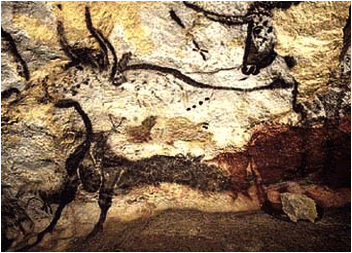 |
Environmental & Evolutionary HealthSpring 2018 George
M. Diggs, Jr. |
 |
 |
Environmental & Evolutionary HealthSpring 2018 George
M. Diggs, Jr. |
 |
To Contact Dr. Diggs:
Austin College Phone: (903) 813-2246
Office: 261 IDEA Center
Mailing Address: Department of Biology, Austin College, Sherman,
TX 75090
AC Suite 61564
e-mail: gdiggs@austincollege.edu
Home page: http://artemis.austincollege.edu/acad/bio/gdiggs/diggs.html
Office Hours: MW 3 - 4 pm.
Environmental & Evolutionary Health — Class Information — Spring 2018
____________________________________________________________________________________________________
Class Meetings: Lecture/Discussion typically 11:00-12:20 a.m. MWF.
Text: The Hunter-Gatherer Within: Health & the Natural Human Diet (available in the College Bookstore, from the publisher, or via Amazon), by Brock & Diggs, 2013.
Course Homepage: http://artemis.austincollege.edu/acad/bio/gdiggs/EEH2018/EEH2018info.html
Course Content: An introduction to concepts in environmental and evolutionary health.
Course Goals and Expected Student Outcomes: The goals of the course are: 1) for students to gain an understanding of the multiple implications of environmental and evolutionary factors for human health; 2) for students to be able to effectively communicate in writing and orally about these implications; and 3) to provide students with opportunities to discuss these implications in an articulate way. Expected student outcomes include reaching an appropriate level of knowledge about environmental and evolutionary health, developing expertise in researching, writing, and discussing about the field, and being able to present an articulate and easily understood oral presentation of their research findings.
Exams and Quizzes: Exam dates are given on the course schedule page. There are three exams with the first two worth 100 points each and the final worth 150 points. The final will be cumulative over all material of the course. Make-up exams without a late penalty will only be offered in the case of a documented emergency, illness, or death in the family. When you are ill please provide an official note from a medical professional (e.g., an email from the campus nurse). Notification of your absence should be given no later than the day of the exam to avoid a late penalty.
Grades: There are 425 primary points in the course (this number will be increased by points for in-class quizzes---especially on the assigned readings---as well as by class attendance and participation). Of the primary 425 points, 350 will come from the three exams, and 75 will be determined by your research summary paper/presentation. All work must be completed to receive a passing grade (For those taking the course S/U, S=70 or higher). Class attendance will also factor into the grade, accounting for as much as one letter grade (in other words, absences can reduce your grade).
Class attendance and behavior: Attendance at class is expected and as noted above will factor into your grade. Further, because visuals are an integral part of the lectures and because much of the material given in lecture will not be found in your textbook or readings, frequent absences will almost certainly result in poorer performance on tests. Texting, surfing the web, etc. is not allowed in class. Students may be dropped from the course for such behavior during class sessions.
Readings: In addition to your short textbook, a variety of readings will be assigned during the semester. Most reading material for the class will be in the form of articles. These will be available on-line (linked from the class schedule page) or on Moodle unless otherwise indicated or handed out in class. Readings are crucially important and many of the test questions will be based on the readings---your grade in the course will be greatly affected by your care with reading the assignments.
Research Paper: Research paper. Please see appropriate web page for details on this assignment.
Academic Integrity: Austin College sets high standards of integrity for both its students and its faculty. Many conceptual advances in science are a result of discussion of information and ideas; I encourage such exchange both in class and outside it. However, all work submitted on examinations and assignments shall be your own. Any ideas in your research summary that do not originate from you are to have their sources noted. Please refer to your student handbook for further explanation of Austin College’s policies regarding academic integrity.
Readings: In addition to your textbook, various readings will be assigned during the semester. These will be available on-line (linked from the class schedule page) or on Moodle unless otherwise indicated or handed out in class.
Students with Disabilities: Austin College seeks to provide reasonable accommodations for all individuals with disabilities and complies with all federal, state, and local laws, regulations, and guidelines. It is the responsibility of the student to register with and provide verification of academic accommodation needs to the Director of the Academic Skills Center (Laura Marquez, Wright Campus Center, Room 211)) as soon as possible. The student also must contact the faculty member in a timely manner to arrange for reasonable academic accommodations. For further information call (903-813-2454) or visit the Academic Skills Center. College policy prohibits instructors from accomodating learning disabilities without first having received the proper written instructions from the Director of the Academic Skills Center.
This work was prepared in accordance with the Austin College
academic integrity
policy. _____________Signature_____________ (Name typed or
printed)
For further information about this course, please
contact:
| Dr. George Diggs, Professor Department of Biology Austin College 900 N. Grand Ave. Sherman, TX 75090 903-813-2246 Fax: 903-813-3199 gdiggs@austincollege.edu |
 |
All text and images on this page copyright 2018, George M. Diggs, Jr.